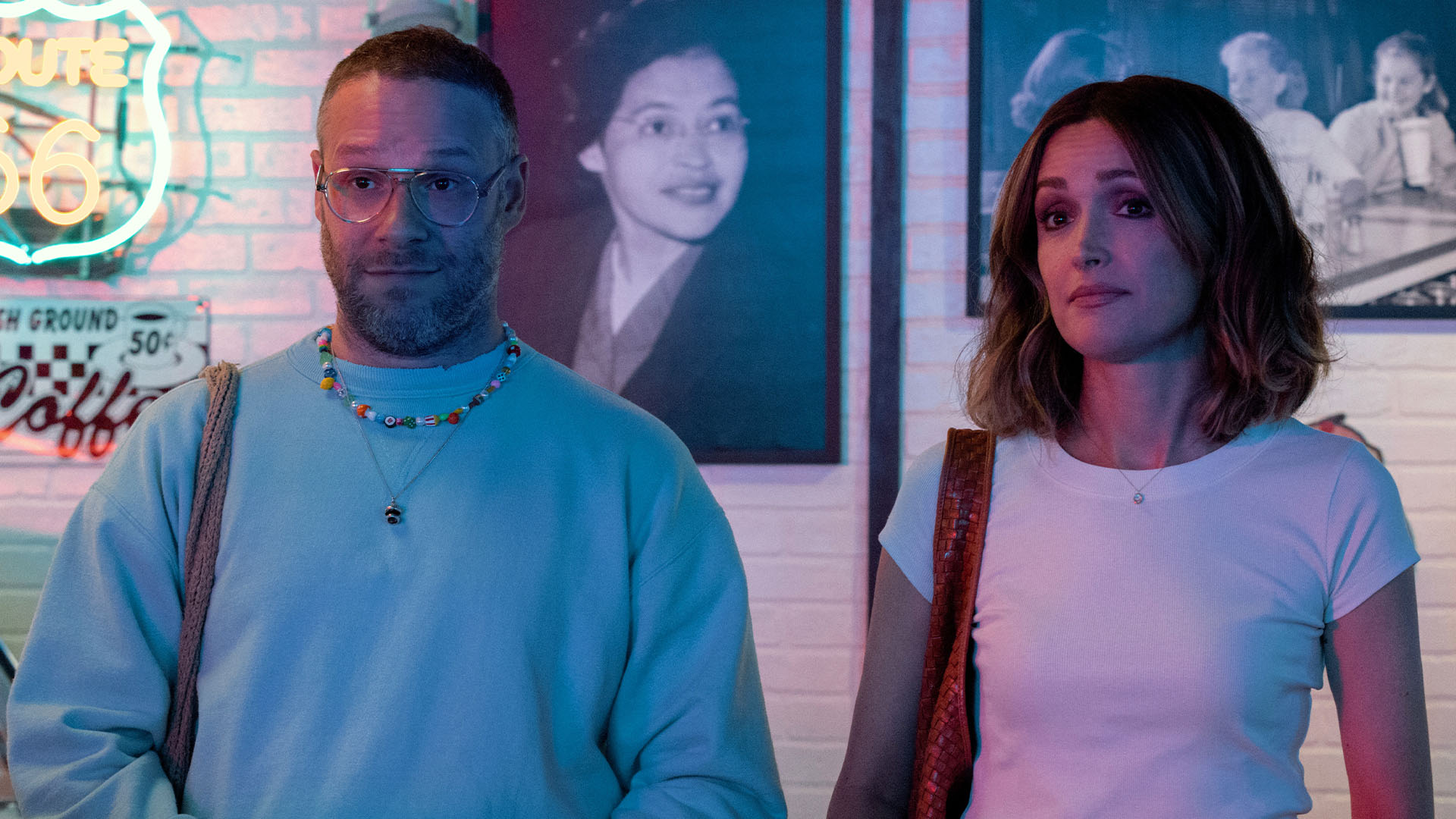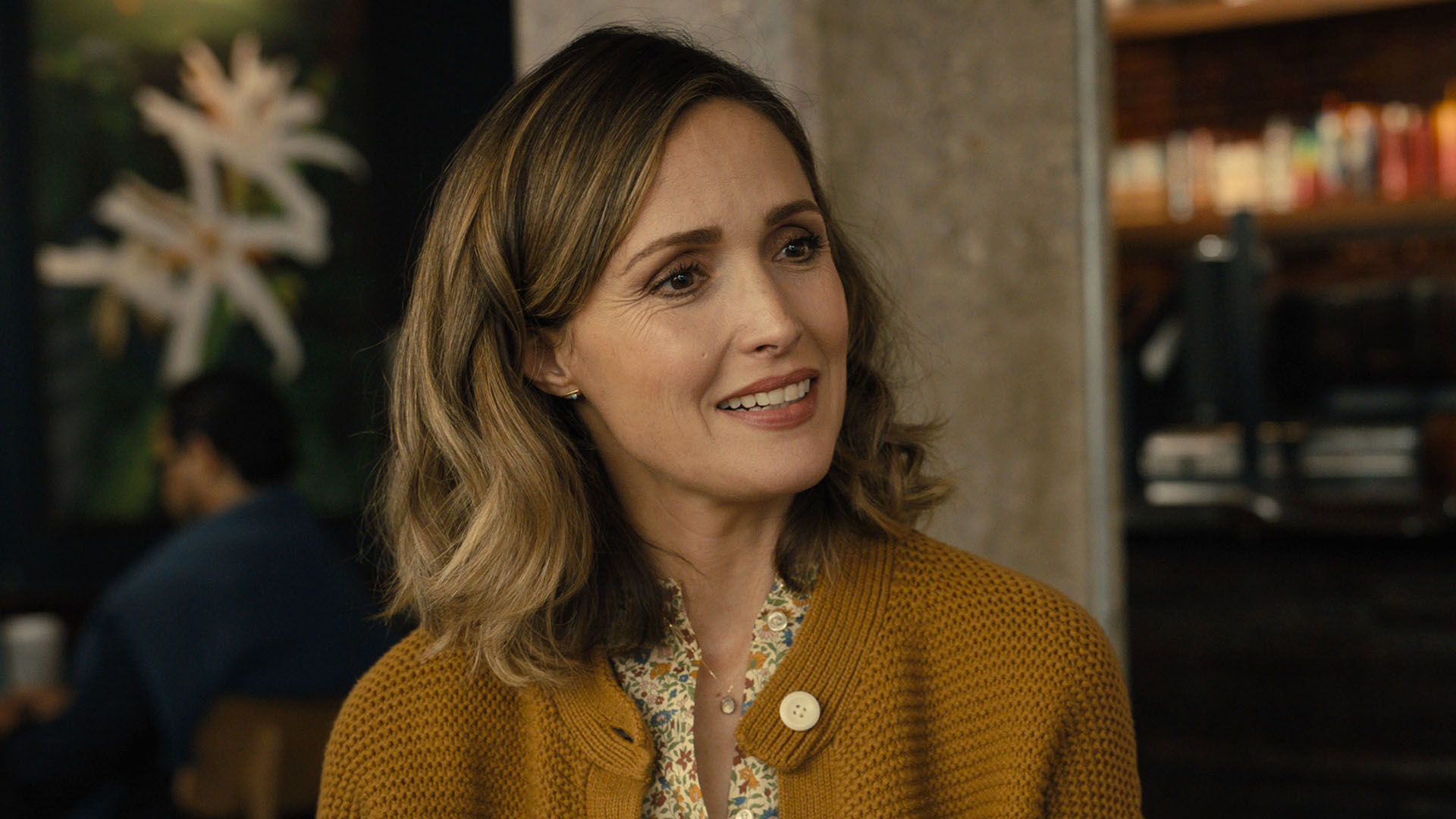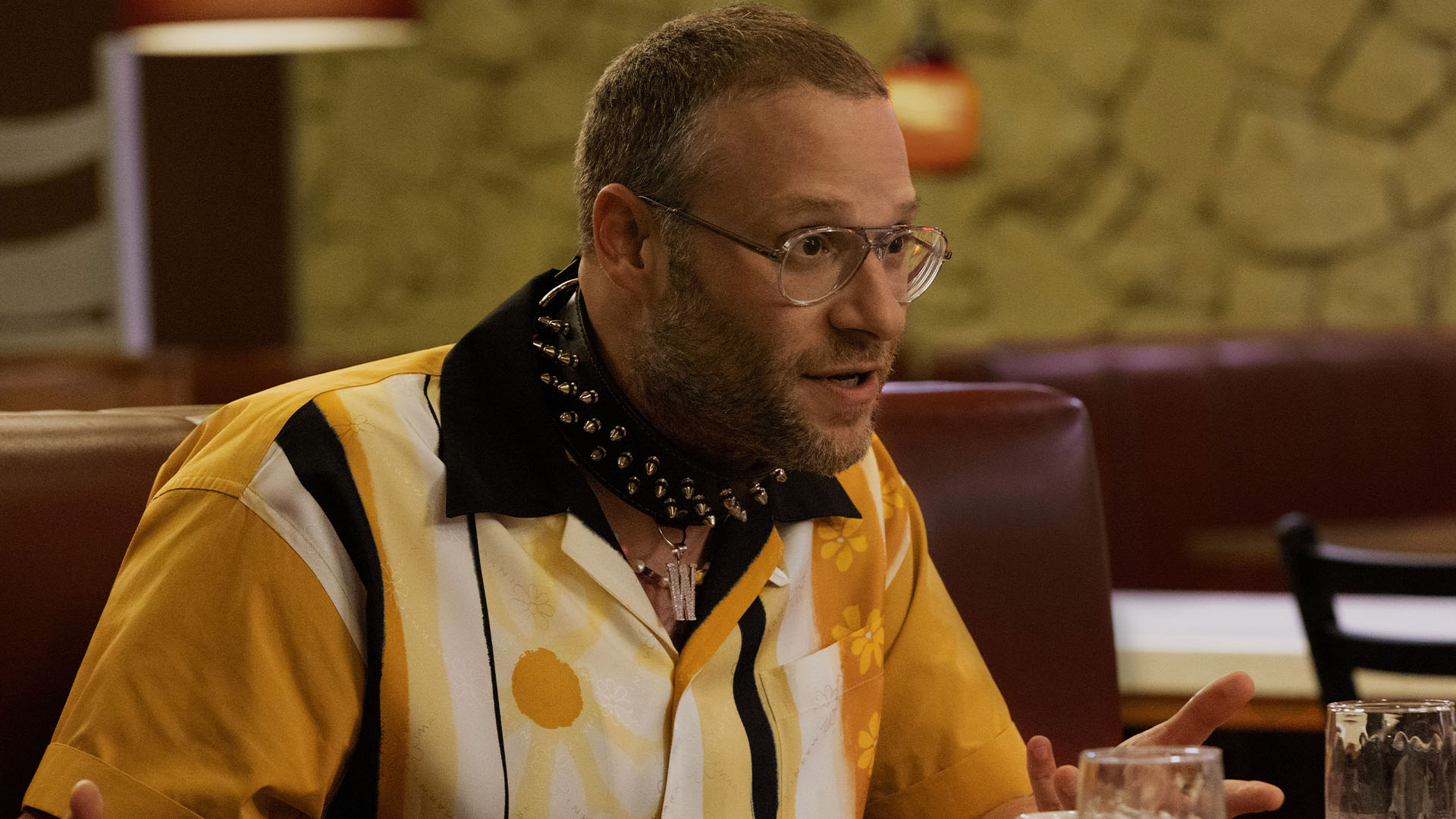Seth Rogen and Rose Byrne reunite in Platonic, nudging each other towards happiness

Seth Rogen and Rose Byrne are former best friends who reconnect as they approach a midlife crisis in new series Platonic. The show finds ways to explore the disjointed dynamics of male-female friendship without resorting to the old “can straight men and women really be friends” schtick, says Clarisse Loughrey.
In Apple TV+’s latest ad campaign, Timothée Chalamet ponders his misfortune. Why does it seem like everybody’s nabbed a film or tv series with the streamer but him? Jennifer Lawrence. Idris Elba. Jason Momoa. Selena Gomez. Julianne Moore. Austin Butler. In an industry where all languages are dead except that of the intellectual property, there’s something almost noble about how Apple’s self-constructed narrative harkens back to the glory days of traditional star power.
I highly doubt Platonic, the streamer’s new ten-part comedy series, would have been greenlit if Apple didn’t recognise the marketability of a Seth Rogen-Rose Byrne reunion post-Bad Neighbours (2014). And while Apple is yet to have a hit that matches the scale of Netflix’s Wednesday or HBO’s The Last of Us—the two of them, it’s crucial to note, are already tied to existing franchises—you could argue it’s a lot smarter to attract subscribers with a steady output of quality shows headlined by their favourite actors rather than feverishly gamble the entire year’s budget on trying to replicate another show’s success. Too many streamers have flushed money down the drain in search of a new Game of Thrones or a new Succession.
This isn’t to denigrate the work of creators Nick Stoller and Francesca Delbanco. Platonic—in which two former BFFs, Sylvia and Will, find themselves suddenly reunited and cannonballing through each other’s lives—finds ways to explore the disjointed dynamics of male-female friendship without resorting to the old “can straight men and women really be friends” schtick (that said, When Harry Met Sally does get a shoutout).

Sylvia and Will turned on each other when the former disapproved of the latter’s fiancé. The latter is now divorced. The former reaches out. And, the more they spend time with each other, the more we as an audience realise the extent to which their lives have been shaped by gendered expectations. Sylvia is a secret goofball who’s somehow ended up in the role of pant-suited, smoothie-guzzling super mom to a genial, reformed jock (Luke Macfarlane). Will is a brewmaster in overpriced skater gear who’s had the freedom to cultivate his ideal image—except that his fear of being labelled a sell-out has started to alienate him from his business partners.
The trickiest part, with any odd-couple friendship, is establishing what exactly draws these oppositional personalities together. We, as an audience, can already fill in the gap there—at least, that’s true for anyone who’s seen the way Byrne and Rogen united to play elder millennials desperate for acceptance by their younger peers in the two Bad Neighbours movies. These actors have raced towards each other, from either end of Hollywood’s great spectrum of typecasting, in order to meet somewhere comfortably in the middle. You get the sense that their chemistry is rooted in how freeing it is for them to share the screen.

Byrne’s early days consisted mostly of supporting roles in dramas and genre pieces, from Star Wars: Episode II – Attack of the Clones (2002) to Troy (2004), Sunshine (2007), and 28 Weeks Later (2007). A recurring role in FX’s legal drama Damages offered her the kind of security needed to pick her own path—and she immediately sought out more comedic work, including as Russell Brand’s arm candy girlfriend in Get Him to the Greek (2010), directed by Platonic‘s own Nick Stoller. The real moment of revelation, of course, came with Bridesmaids and Byrne’s turn as the all-too-perfect, passive-aggressive rival of Kristen Wiig’s self-loathing protagonist.
Rogen, of course, has had no end of comedic projects: The 40-Year-Old Virgin (2005), Knocked Up (2007), Funny People (2009), Superbad (2007), Pineapple Express (2008), etc etc. But every time he appears in a more dramatic vein, like in Sarah Polley’s Take This Waltz (2011), Danny Boyle’s Steve Jobs (2015), or Steven Spielberg’s The Fabelmans (2022), there’ll always be a touch of stupefaction in the air—turns out, that stoner can act!

Byrne and Rogen funnel some of those frustrations into Platonic, while reminding us that they can still nail a punchline like nobody’s business. Sylvia exists in a world where feminism only extends its hand to women wedded to success, and which sees emotional messiness as a betrayal of its teachings. Byrne’s performance, then, is all cracked smiles and rapid-fire sentences nearly exploding into hysteria, as she spits out contextless catchphrases like “Believe women!” and “This is The Handmaid’s Tale” with no real sense of what she means. Will carries with him a destructive dissatisfaction that sees him throw scooters across the street like he’s competing in shot-put.
They each see a missing piece of their life in their old friend; the desire to reclaim what’s lost, at times, starts to look an awful lot like toxic co-dependency. But Platonic, nuanced both in its dialogue and in its performances, also recognises how these lost souls can help nudge each other, even if it’s clumsily, along the path to happiness.

















